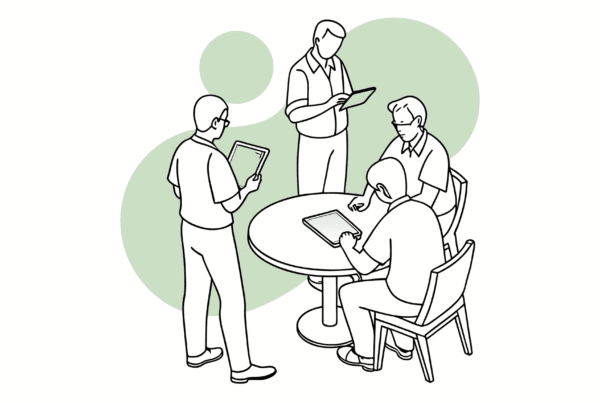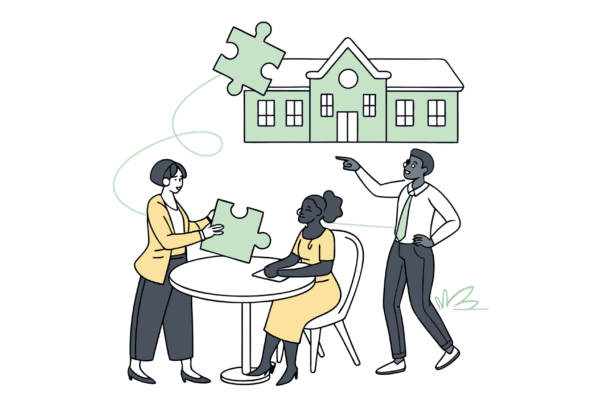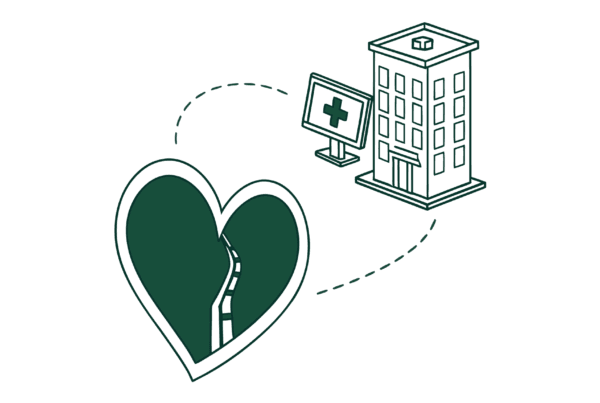The market for hospice care in New Orleans is strong, driven by favorable demographics and significant buyer interest. For practice owners, this presents a unique window of opportunity. However, turning that opportunity into a successful exit requires strategic preparation and a clear understanding of the process. This guide provides insights into the current market, how practices are valued, and what you should consider to achieve your goals.
Curious about what your practice might be worth in today’s market?
A Strong and Growing Market
The financial outlook for hospice care is incredibly positive, creating a favorable environment for sellers. The U.S. market is not just large; it is consistently growing, a trend reflected right here in Louisiana. This growth creates a competitive landscape where well-run practices are in high demand.
National Growth Signals Opportunity
The U.S. hospice market was valued at nearly $30 billion in 2024 and is projected to grow steadily over the next five years. With nearly half of all Medicare decedents now receiving hospice care, the demand for quality services is undeniable and ensures a consistent revenue stream for providers. This national momentum makes established local practices particularly attractive to buyers looking for a foothold in a growing sector.
Louisiana’s Robust Local Market
Locally, the home care industry, which includes hospice, represents a $1.3 billion market in Louisiana. This significant local value, combined with strong Medicare support, makes New Orleans a hotspot for acquisition activity. Buyers are actively seeking established, reputable practices to meet the region’s growing needs.
Key Considerations for a Successful Sale
Beyond the positive market trends, a buyer’s decision will depend on the strength of your practice’s operations. Sophisticated buyers look past the high-level numbers to scrutinize the details that signal a healthy, sustainable business. They will want to see a clear history of regulatory compliance with the Louisiana Department of Health (LDH) and Medicare. Your practice’s reputation is tied to this.
Equally important is the stability of your team and referral base. A dedicated, experienced interdisciplinary group (IDG) is the heart of any hospice and a major asset in a sale. Buyers want to see low staff turnover and consistent referral patterns from a diverse set of sources. Preparing this information and presenting it clearly is a key step in building a buyer’s confidence and maximizing your practice’s value.
High-Energy M&A Activity in Louisiana
The New Orleans hospice market is not just growing; it is a dynamic hub of merger and acquisition (M&A) activity. This is not a theoretical opportunity. Real transactions are happening now, driven by different types of buyers who are all competing for quality assets like yours. This competition is great news for sellers.
Here’s a look at who is active in the market:
- Strategic Acquirers: Large, publicly-traded companies like LHC Group have been expanding their hospice footprint in Louisiana, looking to increase their market share.
- Private Equity Firms: Financial buyers are increasingly drawn to the hospice sector for its stable revenues and growth potential. Their involvement often leads to premium valuations for the right practices.
- Local and Regional Providers: Louisiana-based companies, such as CommCare Corporation, are also making strategic acquisitions to strengthen their local service offerings.
This blend of buyers creates a competitive environment where a well-managed sale process can yield multiple offers and favorable terms.
Understanding the Sale Process
Selling your practice is a structured process, not a single event. It moves through distinct stages, each with its own set of challenges and opportunities. The journey typically begins with professional preparation long before the practice is ever presented to a buyer. This involves organizing your financials, ensuring all compliance documentation is in order, and developing a clear valuation.
Once prepared, the process moves to confidential marketing, where potential buyers are discreetly approached. This leads to the due diligence phase, which is often the most intensive part of the sale. Buyers will thoroughly examine every aspect of your business, from financial records to regulatory standing, including Louisiana’s specific Change of Ownership (CHOW) procedures. Many deals encounter unexpected hurdles here. A smooth diligence process relies entirely on advance preparation and organization.
Valuing Your Hospice Practice
Many owners we speak with are unsure what their practice is truly worth. The good news is that most practices are undervalued until their finances are properly analyzed and their story is told in a way that resonates with buyers. A practice’s value is typically calculated as a multiple of its Adjusted EBITDA. This is your practice’s earnings before interest, taxes, depreciation, and amortization, with adjustments made for owner-specific or one-time expenses.
But not all EBITDA is valued equally. The multiple a buyer is willing to pay depends heavily on the quality and risk profile of your practice. The table below shows how different factors can impact your valuation.
| Factor | Can Lead to a Lower Multiple | Can Lead to a Higher Multiple |
|---|---|---|
| Provider Reliance | Heavily dependent on the owner | Associate-driven, stable team |
| Referral Sources | Concentrated with a few sources | Diverse and consistent streams |
| Compliance History | Some inconsistencies or gaps | A clean and documented record |
| Growth Potential | Stable but stagnant census | A clear, believable path to grow |
Understanding where your practice stands on these factors is the first step toward maximizing its value.
A comprehensive valuation is the foundation of a successful practice transition strategy.
Planning for Life After the Sale
The day the transaction closes is a major milestone, but it is not the end of your journey. What happens next is a critical part of the negotiation. A common concern for owners is the fear of losing control or seeing the legacy they built change. Fortunately, modern deal structures can be designed to protect what matters most to you.
You can negotiate your future role, whether that involves staying on for a transition period or exiting immediately. Structures like an equity rollover, where you retain a minority stake in the new, larger company, offer the chance for a second, often larger, payout in the future. You can also negotiate terms that protect your team and preserve the culture you worked hard to build. Thinking through these “post-sale” elements beforehand ensures your personal and financial goals are met long after the ink is dry.
The right exit approach depends on your personal and financial objectives.
Frequently Asked Questions
What is the current market outlook for hospice care practices in New Orleans, LA?
The hospice care market in New Orleans is strong and growing, driven by favorable demographics and substantial buyer interest. The local market is part of a $1.3 billion home care industry in Louisiana, with high demand for well-run practices due to consistent revenue streams from Medicare-supported hospice services.
Who are the typical buyers interested in acquiring hospice care practices in New Orleans?
Buyers include large strategic acquirers like publicly-traded companies (e.g., LHC Group), private equity firms attracted by stable revenues and growth potential, and local or regional providers such as CommCare Corporation. This diverse buyer pool creates a competitive environment favorable to sellers.
What key factors do buyers consider when valuing a hospice care practice in New Orleans?
Buyers look beyond financials to operational strengths such as compliance with Louisiana Department of Health and Medicare regulations, stability of the interdisciplinary group (IDG), low staff turnover, and diverse referral sources. Valuation typically hinges on adjusted EBITDA, with higher multiples for practices with less owner reliance, strong compliance history, diverse referrals, and clear growth potential.
What should practice owners do to prepare for selling their hospice care practice?
Owners should strategically prepare by organizing financial records, ensuring regulatory compliance documentation is up to date, stabilizing and documenting their team and referral base, and developing a clear valuation. Preparation includes handling Change of Ownership procedures specific to Louisiana and readying for due diligence by potential buyers.
What options do sellers have regarding their involvement after selling their hospice care practice?
Sellers can negotiate their post-sale role, which may include staying on for a transition period or exiting immediately. Deal structures like equity rollover allow sellers to retain a minority stake in the new entity for potential future payouts. Sellers can also negotiate terms to protect their team and preserve the practice culture they have built.



